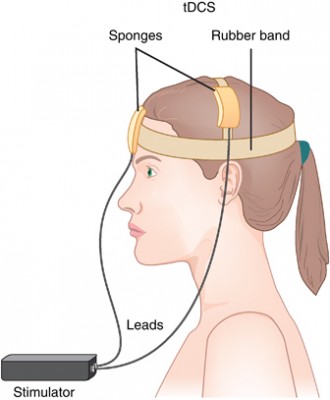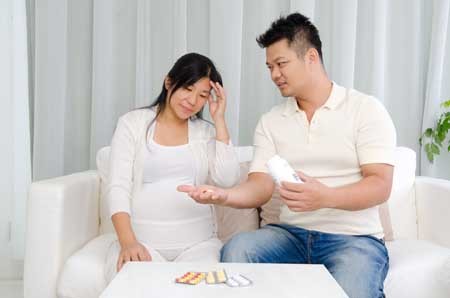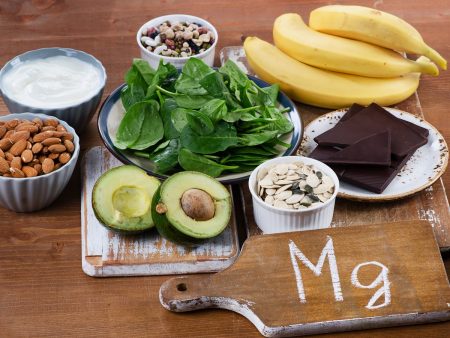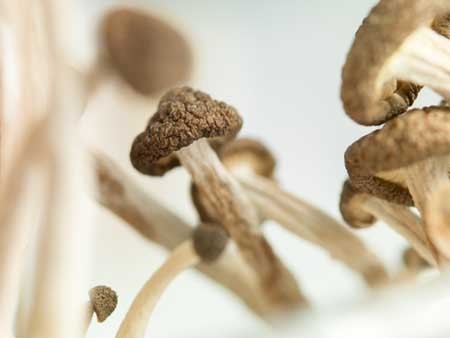Using Antidepressants During Pregnancy Likely Does Not Increase Autism Risk
In the past year or so, several meta-analyses have analyzed data from numerous studies of a possible link between antidepressant use in pregnancy and autism in the offspring. In a 2017 article in the Journal of Clinical Psychiatry, researcher Chittaranjan Andrade offers a meta-analysis of these previous meta-analyses, and determines that while there is a small link between antidepressant use in pregnancy and autism in the offspring, it is most likely the mother’s depressive illness rather than the medications that is responsible for this link.
Andrade found that antidepressant exposure was linked to an increased risk of autism spectrum disorders in the offspring even when the antidepressant use occurred only before conception occurred, when it could not possibly have affected the future fetus’ physiology. This implies that it is the mother’s illness rather than the antidepressant treatment that is a determinant of autism risk.
30 Minutes of TDCS Better Than 20 Minutes in Patients with Unipolar Depression
 Transcranial direct current stimulation (tDCS) has successfully been used to treat depression. In this treatment, electrodes applied to the scalp provide a constant low level of electricity that can modulate neuron activity. In a 2017 article in the journal Progress in Neuro-Psychopharmacology & Biological Psychiatry, researcher Elena L. Pavlova and colleagues report that both 20- and 30-minute sessions of tDCS improved mild to moderate depression when combined with the selective-serotonin reuptake inhibitor (SSRI) antidepressant sertraline. However, the 30-minute sessions produced more improvement in depression.
Transcranial direct current stimulation (tDCS) has successfully been used to treat depression. In this treatment, electrodes applied to the scalp provide a constant low level of electricity that can modulate neuron activity. In a 2017 article in the journal Progress in Neuro-Psychopharmacology & Biological Psychiatry, researcher Elena L. Pavlova and colleagues report that both 20- and 30-minute sessions of tDCS improved mild to moderate depression when combined with the selective-serotonin reuptake inhibitor (SSRI) antidepressant sertraline. However, the 30-minute sessions produced more improvement in depression.
In the study, 69 right-handed patients (average age 37.6) received 50 mg of sertraline (Zoloft) per day and were randomized to one of three tDCS conditions: 10 daily 30-minute sessions, 10 daily 20-minute sessions, or 10 daily sham sessions with no tDCS treatment. The tDCS consisted of 0.5mA anodal current to the left dorsolateral prefrontal cortex.
Both 30-minute and 20-minute tDCS sessions produced greater benefit than the sham sessions. The 30-minute group showed significantly greater percentage improvement in depression scores than the 20-minute group, and included more participants who responded to treatment (89% compared to 68% of the 20-minute group and 50% of the sham group) and more whose depression remitted (70% compared to 27% of the 20-minute group and 35% of the sham group).
Study Suggests Magnesium Could Improve Mild to Moderate Depression as Much as SSRIs
Researcher Emily Tarleton and colleagues report in a 2017 article in the journal PLoS One that over-the-counter magnesium may improve mild to moderate unipolar depression with efficacy similar to that of selective serotonin reuptake inhibitor (SSRI) antidepressants. Magnesium is a mineral that can fight inflammation.
The 126 participants in the open study had an average age of 52. Compared to not taking magnesium, taking 248 mg/day of magnesium produced statistically significant improvement in depression and anxiety symptoms after only two weeks.
The magnesium was well-tolerated by participants. Tarleton and colleagues hope to replicate their findings with a larger and more diverse population.
Treatment with Hormone EPO Improved Cognition in People with Unipolar and Bipolar Disorder
People with unipolar depression and bipolar disorder may experience cognitive difficulties, even when they’re not currently depressed. In a study published in the journal European Neuropsychopharmacology in 2016, researchers led by Caroline Vintergaard Ott determined that treatment with the hormone erythropoietin (EPO) may help. EPO is produced in the kidney and increases the production of hemoglobin and red cells.
Seventy-nine participants with unipolar or bipolar disorder were randomized to receive infusions of either EPO or a saline solution once a week for eight weeks. By the end of the study, those who received EPO showed significant improvements in the speed of their complex cognitive processing compared to those who received saline. EPO is known to induce the production of red blood cells. The improvements in processing speed lasted for at least another six weeks after red blood cell production would have normalized.
Those participants who received EPO not only had improved scores on tests of processing speed, they also reported fewer cognitive complaints. The EPO treatment was most likely to be effective in participants who had more impaired cognition at the beginning of the study.
In previous research by the same research group presented by Kamilla W. Miskowiak at the 2014 meeting of the International Society of Bipolar Disorders, EPO also improved sustained attention and recognition of happy faces.
Meta-Analysis Shows Inflammation is Common in Unipolar Depression, Bipolar Depression, and Schizophrenia
In a symposium at the 2016 meeting of the Society of Biological Psychiatry, Mark Hyman Rapaport described the results of his research group’s meta-analysis of studies comparing levels of inflammation in the blood of people with unipolar depression, bipolar depression, and schizophrenia. Rapaport and colleagues determined that people acutely ill with any of the three illnesses showed abnormally high levels of certain inflammatory proteins. These included: interleukin-1beta, interleukin-6, TNF alpha, and c-reactive protein. Those who were chronically ill showed elevations in interleukin-6.
These data are consistent with increasing evidence that inflammation also occurs in the brain. Brain inflammation can be observed by measuring translocator protein binding, a measure of brain microglial activation, using positron emission tomography (PET) scans.
Creatine Supplements May Speed Up Response to Escitalopram, Improve Brain Connectivity
Antidepressants can take weeks to begin working, and researchers have been investigating ways to speed up this process. A 2012 study by In Kyoon Lyoo and colleagues in the American Journal of Psychiatry found that among 52 women taking the selective serotonin reuptake inhibitor (SSRI) antidepressant escitalopram (Lexapro) for unipolar depression, those who were prescribed an additional creatine supplement had earlier and greater decreases in depression symptoms than those who received a placebo in addition to the escitalopram.
The difference between the two groups was evident by the second week of treatment. At the end of the 8-week study, 52% of those who received creatine had achieved remission, compared to 26% of those in the placebo group.
Creatine, a supplement sometimes used by weightlifters, increases cellular energy. The women received 3g/day of creatine for the first week of the study, and 5g/day thereafter.
The same research group recently published more data from their creatine study. The new article by Sujung Yoon and colleagues in the journal Biological Psychiatry shows that following the creatine supplementation, the women in the creatine group had greater levels of N-acetylaspartate (a sign of healthy neurons) in their prefrontal cortex and also had greater levels of brain connectivity than women in the placebo group.
Psilocybin May Improve Treatment-Resistant Depression
A small, uncontrolled study in the journal Lancet Psychiatry suggests that psilocybin, an ingredient in hallucinogenic mushrooms, relieved depression symptoms for up to three months in seven of 12 participants with unipolar depression that had not responded to at least two antidepressant medications.
Psilocybin has a different mechanism of action than typical treatments for depression. It activates 5HT2A serotonin receptors.
The participants, who had moderate to severe depression, were given two oral doses of psilocybin, a low dose (10mg) to establish the safety of the intervention, and a higher dose (25mg) seven days later. Psychedelic effects (anxiety, confusion, nausea, and headache) peaked within two to three hours and had dissipated by six hours after the intervention.
Depression began to improve within 24 hours after the 25mg dose. Depression symptoms were significantly improved by one week after the intervention. Eight of the 12 participants had a complete remission of their depression after one week, and this lasted the full three months in five participants. By the end of the three months, a total of seven of the 12 participants met the criteria for response to psilocybin.
The study’s authors, led by Robin L. Carhart-Harris, suggest that their preliminary results warrant more systematic investigation of psilocybin, but because there was no comparison group in this study, a large placebo effect cannot be ruled out.
Mindfulness-Based Cognitive Therapy May Improve Depression More Than Fitness Intervention
In a study by researcher Stuart Eisendrath and colleagues, people with treatment-resistant unipolar depression responded better to an intervention that combined mindfulness training with cognitive therapy than to one that included exercise, nutrition counseling, and music therapy.
The 173 participants had failed to respond to at least two different antidepressant medications. During the study period, all participants were taking an antidepressant, but none were receiving other types of therapy.
After eight weeks, the mindfulness-based cognitive therapy (MBCT) group showed greater improvement in their depression symptoms than the exercise and nutrition group. Of the MBCT group, 29.58% had a large reduction in symptoms, while 17.19% of the comparison group showed a similarly large reduction in symptoms.
A subgroup of the participants also received functional magnetic resonance imaging (fMRI) as part of the study. While completing a task related to emotional working memory, the MBCT group showed enhanced activation of the dorsal lateral prefrontal cortex (to levels seen in non-depressed people). This area is related to executive control of depression and memory functions. The MBCT group also showed reduced activation of the ventral lateral prefrontal cortex compared to the comparison group. Members of the MBCT whose depression symptoms had improved also showed better regulation of the amygdala during the task compared to the exercise and nutrition group.
The research was presented at the 2016 meeting of the American Psychiatric Association.
Lurisadone is Effective in Mixed Unipolar Depression
Lurasidone (Latuda) has been approved by the US Food and Drug Administration (FDA) for the treatment of bipolar depression. A new study indicates that lurasidone is also effective in those with unipolar depression complicated by a few manic features, i.e. mixed depression, which is often more severe and less responsive to traditional antidepressants than traditional unipolar depression.
At a 2015 scientific meeting, Andrew Nierenberg and colleagues presented the results of a six-week study comparing 20–60 mg of lurasidone to placebo in about 200 depressed patients who had some manic symptoms. Lurasidone significantly improved unipolar depressive symptoms in addition to the mixed manic symptoms.
At baseline, the patients’ manic symptoms included: flight of ideas/racing thoughts in 66.8% of the participants, pressured speech in 61.1%, decreased need for sleep in 40.8%, increased energy or activity in 28.0%, elevated or expansive mood in 18.0%, increased or excessive involvement in pleasurable activities in 15.6%, and inflated self-esteem or grandiosity in 6.6%.









